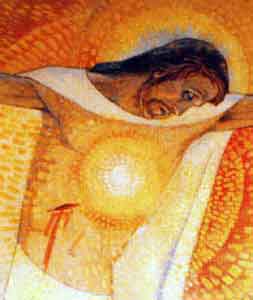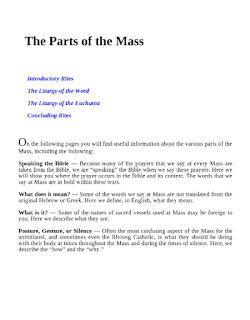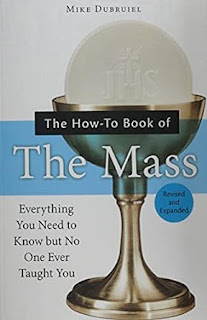This is the second part of step one:
(1) In the first place to love the Lord God with the whole heart, the whole soul, the whole strength...
The map pocket of my car is full of maps. The maps are only helpful to me if I know what my ultimate destination is and if I know where I am at the present moment. Recently while driving in a strange city with the map opened to that city, I knew where I wanted to go but had no idea where I was. Someone in the neighborhood I was in had torn down all of the street signs. I continued to travel up the street until finally I was able to locate a street sign.
Our lives can be the same confused mess that I felt on that day driving aimlessly up and down a city street. Who are we? Why are we here?
The Baltimore Catechism gave us a simple answer. We are here because God loves us. That is the starting point of the spiritual quest is to believe wholeheartedly that we are loved. A subtle but key ingredient to the fear that we feel in surrendering to God is that we do not believe that we are loved but fear that we are hated.
I remember as a child whenever I would be on my way to confession on a Saturday afternoon secretly fearing that God would try to see to it that I was killed before I arrived there. Where this fear came from I do not know, but it was real and it was only much later that I finally realized that God was the redeemer not the enemy.
The attitude we have toward God is all-important if we are to love God with our whole being. We must believe that God loves us first and want what is best for us. It is hard to do anything but love God with our whole being if we believe that God loves us. In an older translation of the New American Bible the words of Jesus are applicable here, “Fear is useless, what is needed is trust.” The words of the supplicant must be our words also, “I believe Lord, help my unbelief.”
It may seem obvious that the first step that anyone would make toward perfect communion with God is to place God at the very center, but how many times we look everywhere else for the way? If we wish to have communion with God we must enter into God’s presence and offer our entire being to God.

















